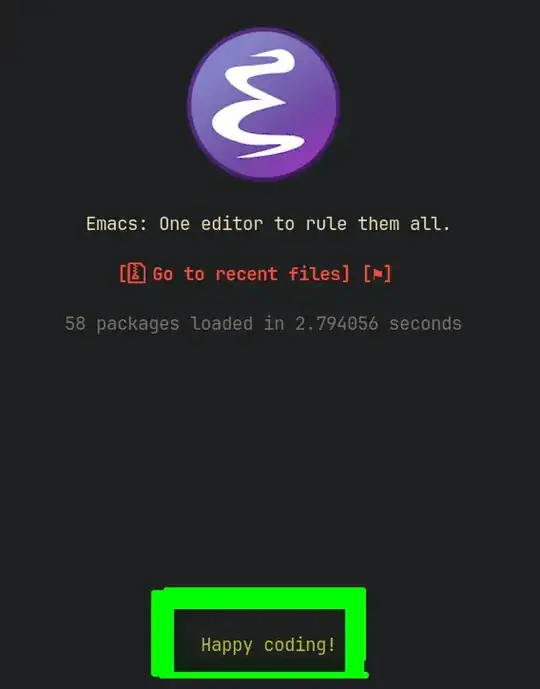So today I installed a dashboard for emacs with M-x package-install RET dashboard. It works perfectly fine. I made some nice customization and it looks great!
But by default, there are some messages (at random) that I don't like (at the bottom of the screen).
These in particular are annoying: "Happy coding", "Free as free speech, free as free Beer". And they still show up. So I was wondering how to remove them permanently.
Here is the source code in `~/.emacs.elpa/dashboard-20230512.1839
/dashboard-widgets.el`:
(defcustom dashboard-footer-messages
'("The one true editor, Emacs!"
"Who the hell uses VIM anyway? Go Evil!"
"Free as free speech, free as free Beer"
"Happy coding!"
"Vi Vi Vi, the editor of the beast"
"Welcome to the church of Emacs"
"While any text editor can save your files, only Emacs can save your soul"
"I showed you my source code, pls respond")
"A list of messages, one of which dashboard chooses to display."
:type 'list
:group 'dashboard)
|
| (Here my personal customization)
|
⊻
(defcustom dashboard-footer-messages
'("Who the hell uses VIM anyway? Go Evil!"
"Welcome to the church of Emacs"
"While any text editor can save your files, only Emacs can save your soul"
"A list of messages, one of which dashboard chooses to display."
:type 'list
:group 'dashboard)
As you can see, I already got rid of the sentences that I didn't like. Only these are the ones I look for when I boot emacs. But still, sometimes these other sentences are displayed. I did some digging and found this: M-x byte-compile-file. But that didn't work either. Here is my error message: end of file during parsing. Thanks for any help in advance :^).
To clarity further: I want to get rid of sentences I already deleted from the elpa folder:
EDIT: As it turns out, I just overlooked the options. It is really customizable using the normal UI setting. It was at the bottom and I thought the footer above was the only option for that. Now I have what I was looking for, right? But my question still remains. When I edit the source code directly from the elpa folder, why do my changes not apply?

